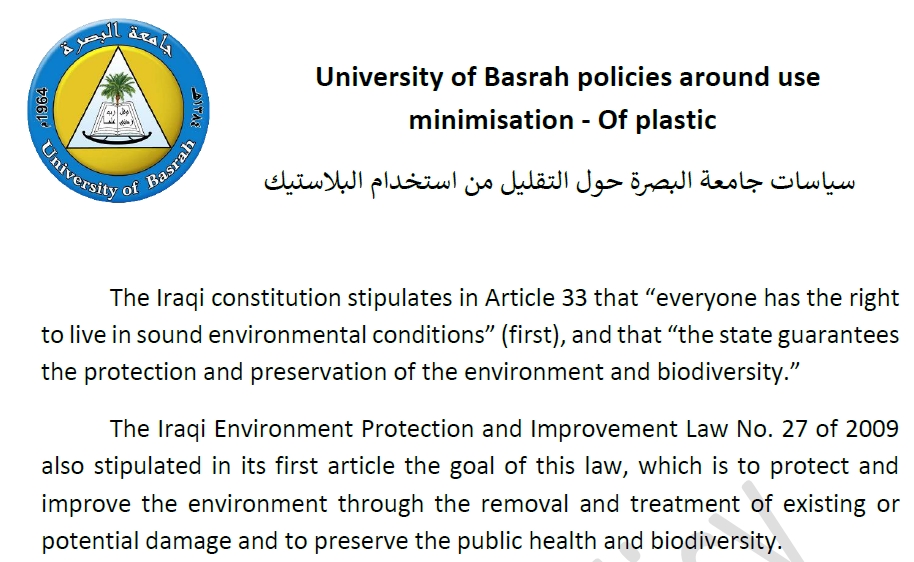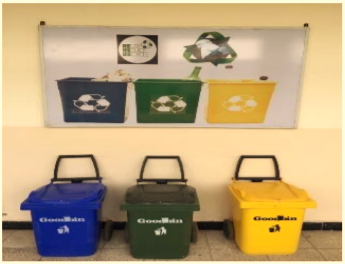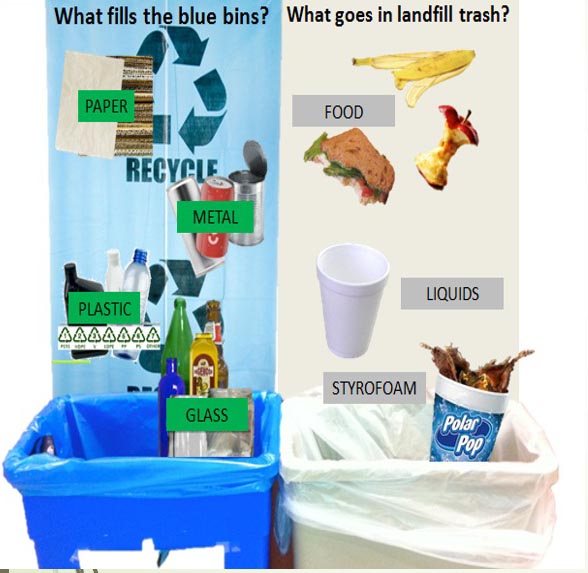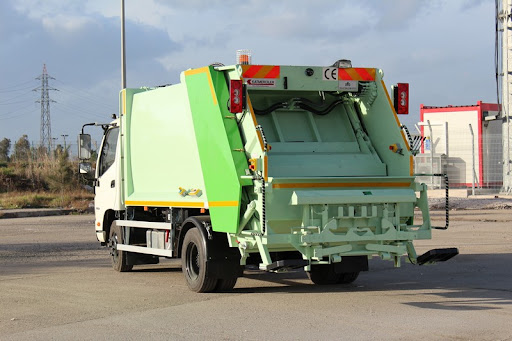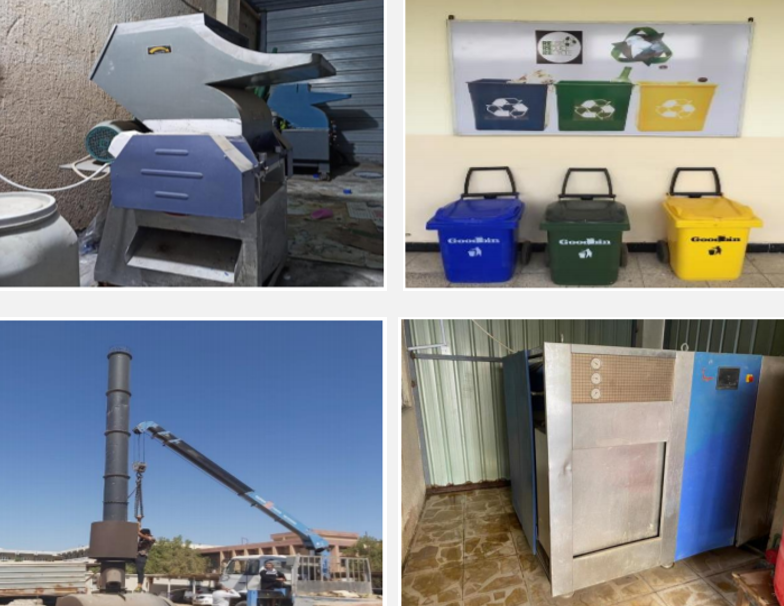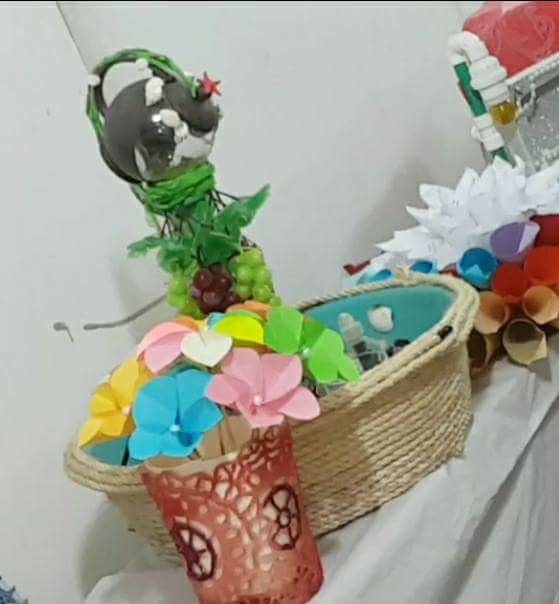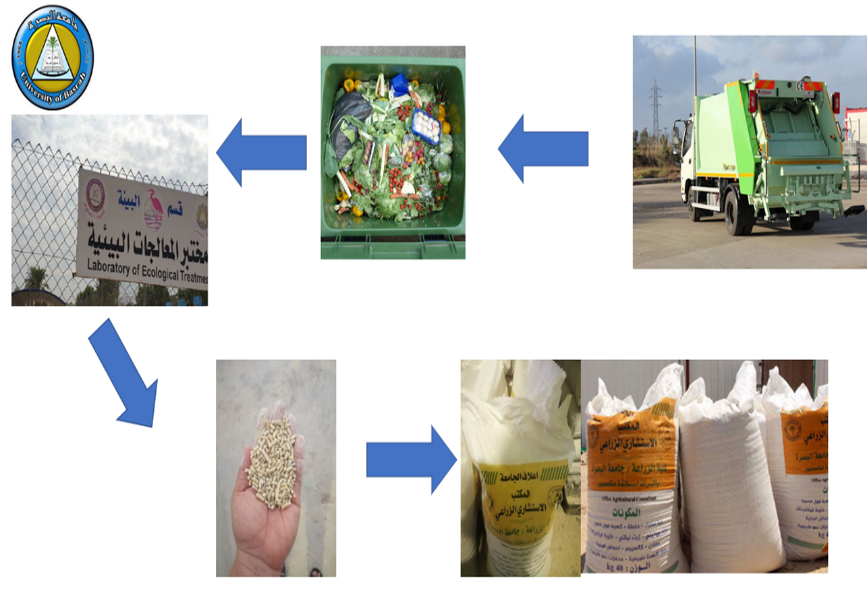Responsible Consumption & Production
Take Urgent Action to Combat Climate Change & Its Impacts
The University of Basrah has launched several projects to recycle heavy/light waste
The University of Basrah keeps pace with the global trend towards the insurance of sustainable living, thus the University of Basrah continuously develops its projects for sustainable living. Since one of the most important principles for sustainable living is to deal with waste and exploit it by recycling process with maximum potential. Therefore, the University of Basrah had attached particular importance to developing programs that ensure the recycling and utilization of university waste.
Waste Classification
Classification of university waste is the most important step in the program because the method of dealing with waste varies and changes according to the type of waste.
Waste
The most waste types that can be recycled in the university are paper, plastics, metal, Aluminum, glass, organic material, ... etc.
Non-recyclable Waste
The local government in Basrah eliminates the non-recyclable waste from all campus buildings at the University of Basrah.
Wastes Recycling
The University of Basrah has waste treatment units for processing and recycling all types of waste and thus, using it, for example, in the paper industry and other purposes.
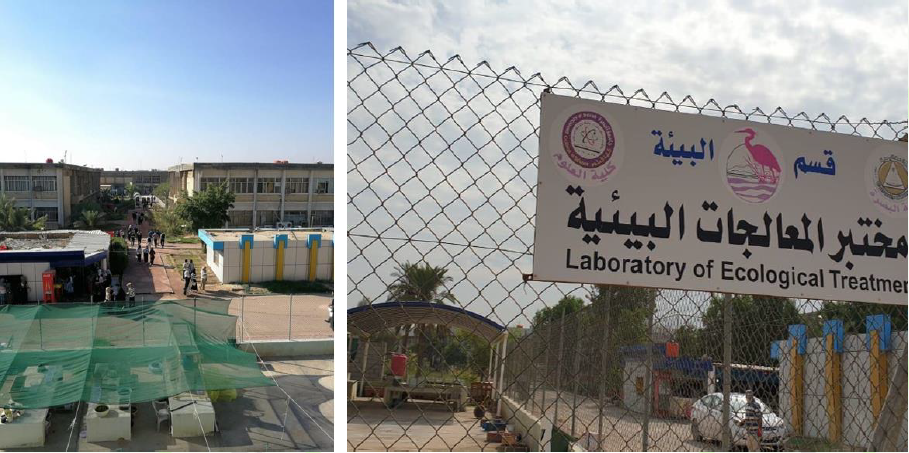 Laboratory of Ecological Treatment
Laboratory of Ecological Treatment
The Environmental Treatments Lab was established to provide the opportunity for graduate and undergraduate students to work in treating various organic environmental pollutants and heavy metals. The laboratory's idea concentrated on the use of Eco-friendly methods to get rid of organic pollutants, such as removing crude oil, its derivatives, and heavy metals from water and soils by using aquatic plant species such as reed cattail and coontail, also terrestrial plants such as barley.
Several masters students conducted their projects in the laboratory that included:
1- Phytoremediation of soils contaminated with petroleum hydrocarbons by using three types of plants.
2- The role, physiological and anatomical changes of some aquatic plants exposed to oil pollution.
3- Using cattail plants to reduce water pollution with kerosene.
4- Treatment of the industrial wastewater of the Najibiya power station using some plants.
In the laboratory, undergraduate students are trained in recycling activities to convert various wastes into materials that can be used instead of turning them to accumulated wastes affecting the environment. The Ecology department-approved held an annual exhibition of recycling activities and a competition among students for the best idea that could be applied.
Reused of Papers an plastic in Art.
University has a program to reuse papers for art designs.
Recycling food waste in producing feed pills.
UOB Policy On Around-Use Minimization Of Disposable Items
